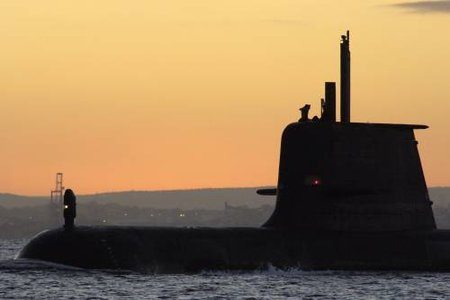Defence Minister Stephen Smith has admitted there are “long-term difficulties” with the trouble-plagued Collins class submarine fleet.
He has announced a review of the $6 billion six-boat fleet in the face of reports that they spend most of their time under repair and sometimes only one has been available for service.
The submarines’ diesel engines have never functioned well and there are now real doubts that they are robust enough to last until 2025, when the fleet is due to be replaced.
Other mechanical issues include the performance of the electric motors, batteries and generators, and the armament and fire/control systems.
Mr Smith says the Government has engaged British-based defence sector expert John Coles to carry out the review to “give us a clear pathway” to getting “more subs into the water”.
The Government is committed to a new submarine program of 12 vessels but detailed planning for the new fleet has not yet begun.
“If we are going to start a program for new submarines – which will be the largest Defence project the Commonwealth has seen – we’ve got to be very conscious of the maintenance issues as well as the actual building and capability,” Mr Smith told ABC News Breakfast today.
The submarines were built in Australia under licence from Sweden by the purpose-formed Australian Submarine Corporation (ASC), but have never been reliable.
“When they are in the water they have a very effective conventional submarine capability. Our challenge has always been getting more submarines in the water …we have to do better,” Mr Smith said.
Defence analyst Andrew Davies, from the Australian Strategic Policy Institute, told AM there are communications and resourcing problems between Defence and the ASC.
“The review will certainly shine a light into the dark corners of relationships between the various players, and that will be a good thing,” Mr Davies said.
“The interesting question is to how much of the problems at the fleet are actually due to intrinsic features of the submarines.
“So far we’ve spent over $10 billion on the Collins class submarines in terms of acquiring them and supporting them for the 10 years or so that they’ve been in service, and it’s really hard to see that the taxpayers got value for money out of that.”
Meanwhile Mr Smith defended Australia’s role in Afghanistan in the face of criticism by former Army chief Peter Leahy that it is pursuing “half a strategy” and should place more emphasis on nation building.
Lieutenant-General Leahy, who led the army between 2002 and 2008 and is now a director of the University of Canberra’s National Security Institute, says while the ground forces are doing a good job, more non-military resources should be sent.
But Mr Smith says the criticisms are “not correct for now”.
“It’s only been in the last couple of years where the international community has got the correct strategy in place,” he said.
“Indeed you can refer to some of those years between 2002 and 2008 as the lost years in Afghanistan, where there wasn’t a comprehensive military and political strategy.”
He says those elements are now in place: “Because we have made security progress we’re in a position to put more civilians, more diplomats, more AusAID personnel on the ground.”










